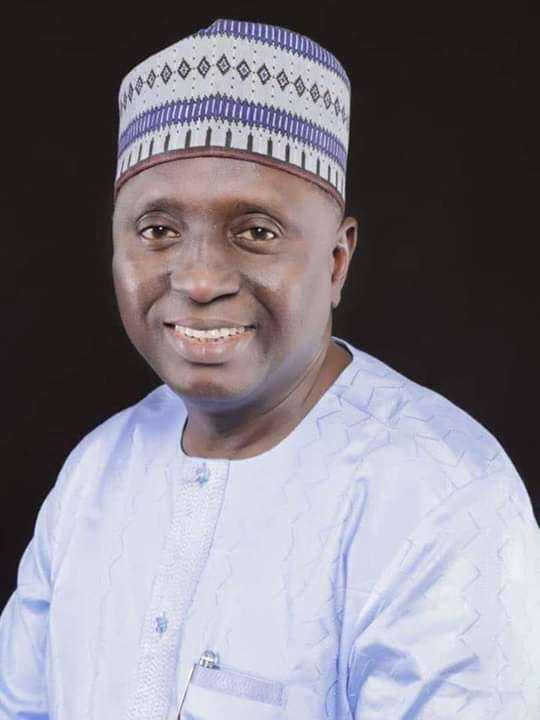THE Chairman Senate Committee on Health, Senator Ibrahim Oloriegbe, has said the denial of full practice license to medical practitioners is never a solution to brain drain in the country.
Oloriegbe, who is also a medical practitioner, disclosed this in a series of tweets on Saturday, April 8 via his Twitter handle.
The Nigeria House of Representatives had on April 6 announced that the bill sponsored by Rep. Ganiyu Abiodun Johnson to make it mandatory for Medical and Dental practitioners not to be given full practicing license until five years after graduation, has passed through second reading.
According to the National Assembly, the bill is part of measures to halt the migration of Nigerian medical doctors to other countries in search of greener pastures.
Reacting to the proposed legislation, Oloriegbe said the factors responsible for brain drain are multifaceted and the mere denial of full practice license to medical practitioners will never resolve the issues, adding that it may aggravate them.
He wrote: “Besides, it is not only medical doctors that are leaving the country for greener pastures abroad, there are other health workers, as well as professionals in other fields of human endeavour, trained but leaving the country on daily basis for similar purposes, consequently, focusing attention only on the medical doctors is like curing one of many ailments that are threatening the life of a dying patient without finding solutions to the others.”
He claimed that the issues and facts related to granting of practicing license are not understood by the sponsor of the bill.
Offering his perspective as a medical practitioner of many years, Oloriegbe noted that the “proposed legislation at a minimum violates the right to the ‘Freedom of Movement’ (Sec. 41) and ‘The right to freedom from discrimination’ under (Sec. 42) as guaranteed by the Constitution of the Federal Republic of Nigeria (CFRN) 1999, as amended”.
“These rights cannot be ordinarily denied by any person or government. Thus, we can’t be seeking legal redress through an illegal procedure,” he added.
He noted that “a person who is “qualified as a Medical Doctor” cannot be denied a license to practice having been certified qualified, except if he is found wanting in the ethics of the profession.
Continuing, Oloriegbe wrote: “Labour laws will come into place here. Furthermore, before the bill can be considered for legislative passage and executives’ approval, the following fundamental issues are important to scrutinise:
- a) When does the 5-year period start, before or after the housemanship?
- b) What sort of license will be awarded to a fully trained doctor instead of a full license to practice under the proposal?
- c) Is there going to be a limit in the doctor’s scope of practice, and to what extent are the limits during the five years waiting period? And we need to establish why we are putting such limits; is it for lack of skills, or political expediency?
- d) What happens after the five years of denial of rights to practise?
- e) Consequently, how will this law advance the quality of clinical services, education, and research in any system, let alone, a crippled one like ours?”
Arguing that the challenge of brain drain in the country’s health sector cannot be addressed through the bill, he stressed the need to address the various factors that make skilled health workers desire to migrate out of Nigeria.
Proffering solutions to the issue of brain drain in the country, Oloriegbe listed the following:
“i. Medical students could be obliged to choose between paying the standard market rate for their training or opting for government-subsidized training. Quality education in its real sense can’t be free. Those who however opted for subsidized training after their qualification would in return be compelled to work in Nigeria for a certain time or refund the subsidies. This is a practice obtainable even in advanced countries such as the UK.
“ii. To achieve the goal of a mandatory work scheme, we can enable a system that will guarantee employment opportunities for medical professionals after their qualification and provide inflation-adjusted living earnings for a few years after graduation on the condition that they stay in Nigeria to practice. Apart from providing attractive remunerations, their work environment and career expectations should also be prioritized. Incorporating both measures should give us satisfactory results.
“iii. Lastly and importantly, we need to improve our health system with sustainable investments to make it conducive for the various health workers to work. We can be assured of better outputs only if what we input is in good condition.”
He further appealed that rather than enacting laws that will curtail the rights of the citizens to free movement, the House should advocate for an improved system that will be very attractive and make medical practitioners unwilling to travel abroad to seek better living conditions.
Usman Mustapha is a solution journalist with International Centre for Investigative Reporting. You can easily reach him via: [email protected]. He tweets @UsmanMustapha_M




















